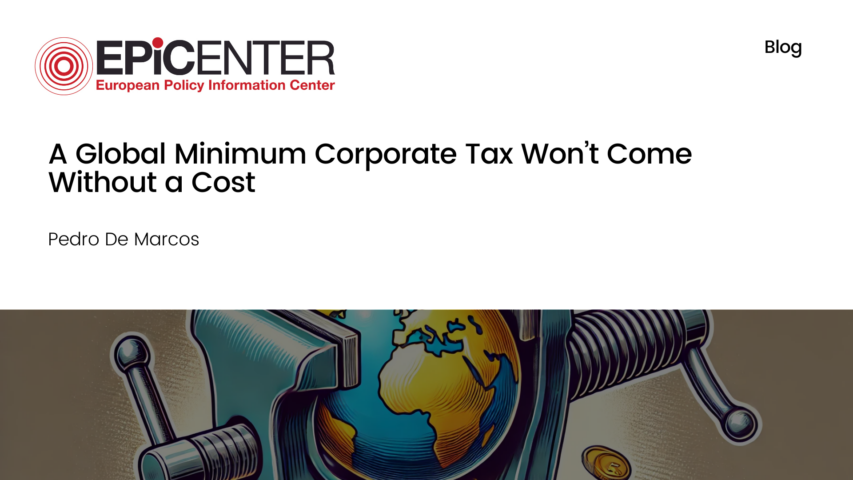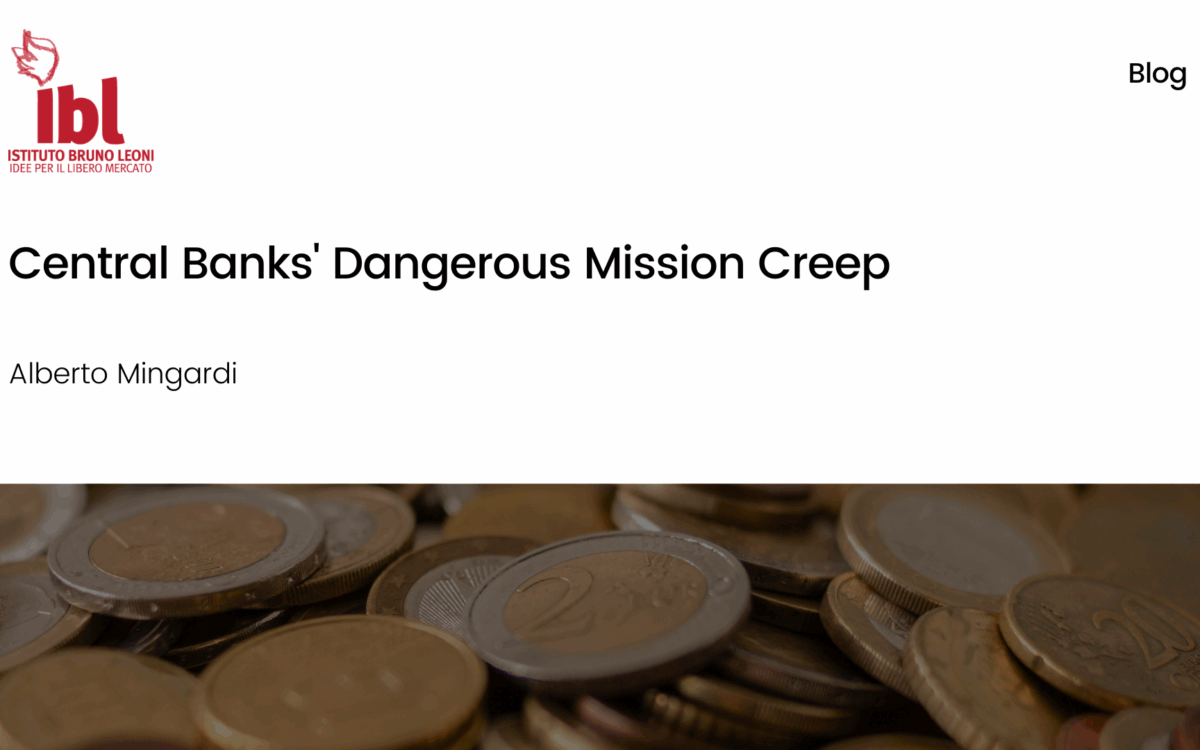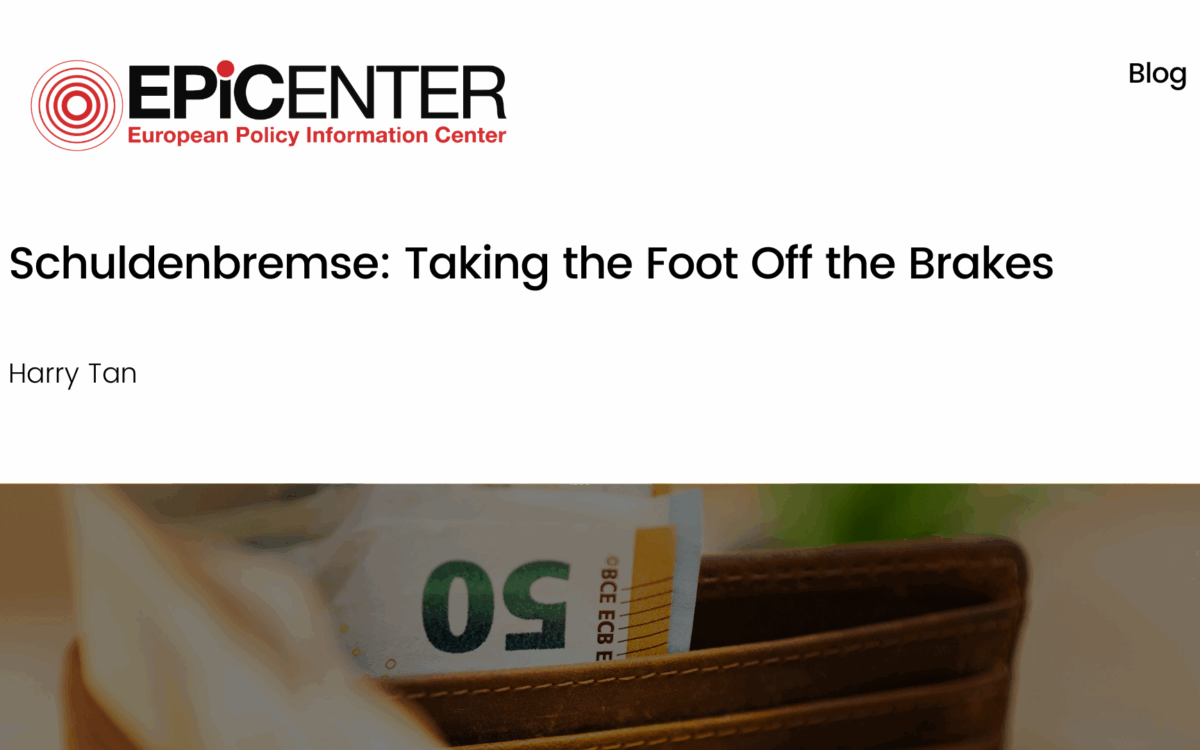A Global Minimum Corporate Tax Won’t Come Without a Cost

A Global Minimum Corporate Tax Won’t Come Without a Cost
Pedro De Marcos // 26 July 2021
What was once a pipedream in academic circles, a global minimum corporate tax might soon be a reality that could change the way the world’s biggest companies do business across borders. In an attempt to limit tax competition and increase government revenues, the OECD has won international backing for a global minimum tax rate of 15%, and a set of rules that would force technology giants and other multi-national corporations (MNCs) to pay taxes in countries where their goods or services are sold, even if they have no physical presence there. Proponents of this deal claim that it will level the playing field and end the “race to the bottom” on corporate tax rates by putting a floor on effective tax rates applied to cross-border investment by large MNCs. However, not only are this policy’s odds of success slim, but if effective it will create a negative impact on consumers and workers across the world.
For starters, the incentives for joining versus staying out will all but guarantee the plan’s failure. While in a trade deal the economic benefits of membership grow as more countries join and the size of the single market increases, with a global minimum tax the economic benefit to any one country that stays out grows as more countries join. For example, if Ireland it had stayed out of a free-trade regime like the European Union, it would have shot itself in the foot by making imports more expensive and exports uncompetitive. On taxes, however, staying out of any global tax deal would ensure it can still have a tax code that allows it to remain more attractive to global corporations than most countries. That means that Ireland and other investment hubs will likely fight to stay out of any global minimum tax regime, thereby making the deal nothing more than a dead letter. In fact, Dublin, which has resisted EU attempts to harmonize its tax rules, is unlikely to accept a higher minimum rate without a fight. Even if their resistance does not completely derail the deal, this battle will likely hobble the effects of the treaty and limit its impact.
Furthermore, this policy enters the scene at a weak time for the global economy. Following a peak of nearly $2 trillion in global FDI in 2015, worldwide cross-border investment has decreased in four out of the last five years, with the most recent numbers showing global FDI at levels below 2005. A global minimum corporate tax would only worsen this situation, as cross-border investment is sensitive to tax policy, and firms will have to take a more conservative approach when choosing whether to expand abroad to reach foreign customers. These changes could result in both foreign and domestic reductions in operations and employment with spillover effects to the local communities where they are located. In addition, in the case of corporations that already operate abroad and have considerable pricing power (that is, the companies that the tax is directed for), they will likely pass down some of the cost of the tax to consumers or workers. As economic theory tells us, corporations usually cover for the cost of the tax by passing it on to customers. However, customers then pass a share of the tax back on to producers by reducing the amount of the product they buy, which will cause corporations to see their revenue decrease and they will have to make up for that either by increasing prices or lowering wages.
Overall, while well-intentioned, a global minimum tax would increase the tax burden on business investment across the world that would be paid by the communities where those businesses operate. In order to mitigate the negative externalities of the tax, policymakers should ensure that both the minimum rate and the tax base to which it applies are designed in a way that does not distort investment decisions but still acts as a backstop to current corporate tax rules. For example, the minimum tax could be applied to a tax base that fully exempts investment and employment costs. Ultimately, it is important that the governments avoid the temptation to simply focus on potential revenues and take into consideration the negative impacts that a corporate tax might have on the global economy if the recovery in cross-border investment were to stall in the coming years.
EPICENTER publications and contributions from our member think tanks are designed to promote the discussion of economic issues and the role of markets in solving economic and social problems. As with all EPICENTER publications, the views expressed here are those of the author and not EPICENTER or its member think tanks (which have no corporate view).



